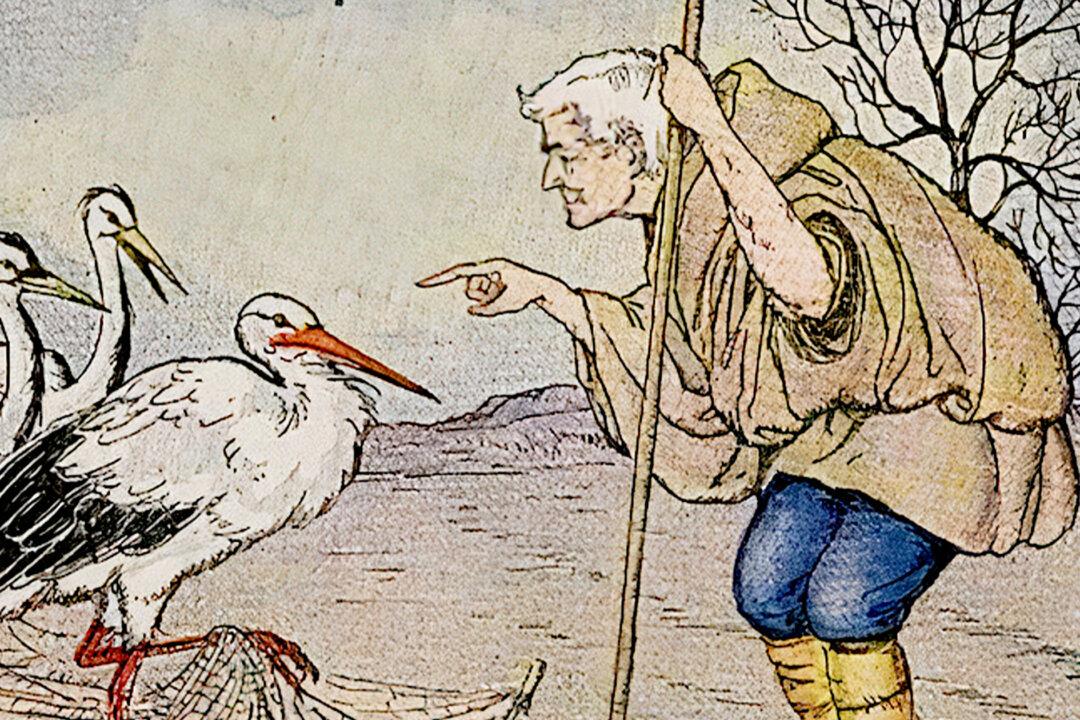A stork of a very simple and trusting nature had been asked by a gay party of cranes to visit a field that had been newly planted. But the party ended dismally with all the birds entangled in the meshes of the farmer’s net.
The stork begged the farmer to spare him.






